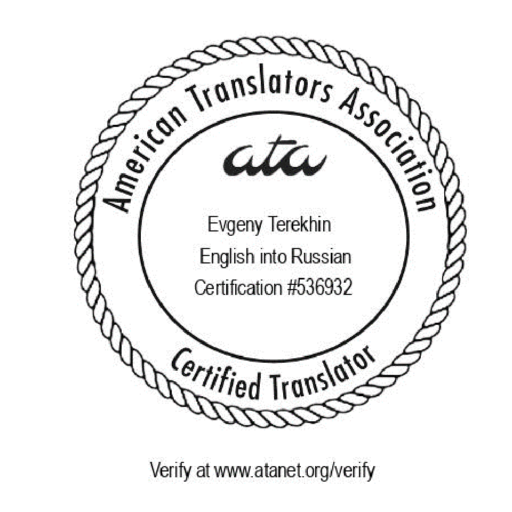
Finding the right certified Russian medical interpreter or translator can be tricky. When choosing the right specialist, you are looking for someone you can trust — someone who can not only fully understand your message but, more importantly, show human empathy.
AI can interpret (sort of), but it doesn’t have feelings. A machine can spit out words, but it can’t “understand.” When your doctor and patient speak different languages, accuracy, empathy, and experience are essential.
For over 30 years, I have provided translating services in Russian and Ukrainian across medical, legal, technical, and business fields. In this short article, I will share what I’ve learned working as a medical interpreter in high-stakes situations — specifically as a Russian medical interpreter and translator.
Note: If you need someone to be present (in person or remotely) during a patient encounter, you need an interpreter. If you’re handling medical paperwork, you need a translator. In many cases, one professional provides both services — but not all translators are qualified interpreters, and vice versa. An ATA-certified translator and interpreter can do both.
Look for a Certified Medical Translator and Interpreter
If you want to be understood — and understood quickly — look for a certified specialist. ATA certification (American Translators Association) is trusted all over the world. It shows that the professional has been tested and meets recognized industry standards. As a Russian translator certified by ATA:
- I ensure that all my translations meet the high standards required by courts, government agencies, and medical institutions (with an approved seal).
- Certification means more than professional ethics; it means mastery of the craft.

Choose Expertise in the Right Context
A medical translator and interpreter must do more than simply know the language. Communication is much more than exchanging words. Communication is more than exchanging words — it is about understanding the meaning behind those words. Understanding happens when two people catch each other’s meaning behind the words.
A medical translator and interpreter must be fluent in medical terminology, sensitive to cultural nuances, and, above all, fully attentive to what the patient actually means.
Over the past three decades, I have served as a Russian medical interpreter in:
- Specialized clinics (cardiology, foot and ankle, chiropractic)
- Mental health counseling sessions
- Pre- and post-operative consultations
- Physical therapy and rehabilitation
- Telehealth and remote care platforms
Consider Cultural Expertise
In medical settings, cultural context can mean:
- What words are used to describe symptoms
- Comfort levels in discussing certain topics
- Understanding of medical procedures and risks
A professional who works regularly in both languages can navigate these differences to ensure patients understand and feel understood.
Communication on the Human Level
A great medical interpreter is not just bilingual — they are human, which means they can feel. No machine can do that. They are:
- Clear and accurate — no additions, omissions, or personal opinions.
- Calm under pressure — able to handle urgent or emotional situations calmly.
- Culturally sensitive — aware of body language, tone, and etiquette in both cultures.
- Ethically committed — confidentiality and impartiality are non-negotiable.
Confidentiality Practices
Medical interpreters must comply with HIPAA (Health Insurance Portability and Accountability Act) in the U.S., which protects patient privacy. This means:
- Secure handling of documents and digital files.
- No sharing of patient information.
- Discreet, professional behavior in all settings.
I treat every patient conversation and document as strictly private.
Track Record and Client Feedback
Experience is important, but so is a history of satisfied clients. When selecting a translating service, look for:
- Testimonials from healthcare providers or patients.
- Examples of similar work they have done.
- References you can contact.
Some feedback from my own clients:


8. Consider Versatility — Beyond Medical Settings
What if your immediate needs are medical, but later you also need a certified legal translation? A versatile translator or interpreter can be a valuable long-term partner.
Over the years, I’ve helped clients move seamlessly between medical, legal, and business contexts — translating medical records for immigration cases, interpreting at legal depositions involving medical testimony, and localizing patient education websites for international audiences.
This versatility saves time, ensures consistency, and means you don’t have to search for a new professional every time your needs change.
Why Choose My Services for Medical Translation and Interpretation?
- 30 years of professional experience across medical, legal, technical, and literary fields.
- ATA-certified Russian translator, meeting the highest industry standards.
- Proven expertise as a Russian medical interpreter in high-stakes environments.
- Native-level fluency in both Russian and English, with deep cultural knowledge.
- Commitment to confidentiality, accuracy, and client satisfaction.
Your words matter — whether in a hospital, courtroom, or boardroom — choosing the right translator or interpreter can make all the difference.

